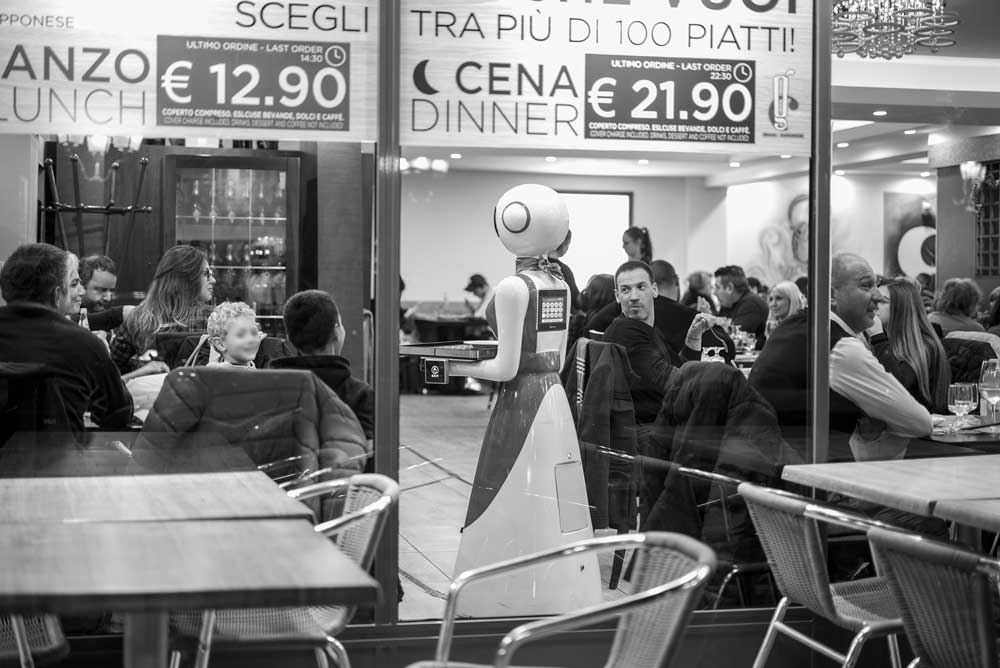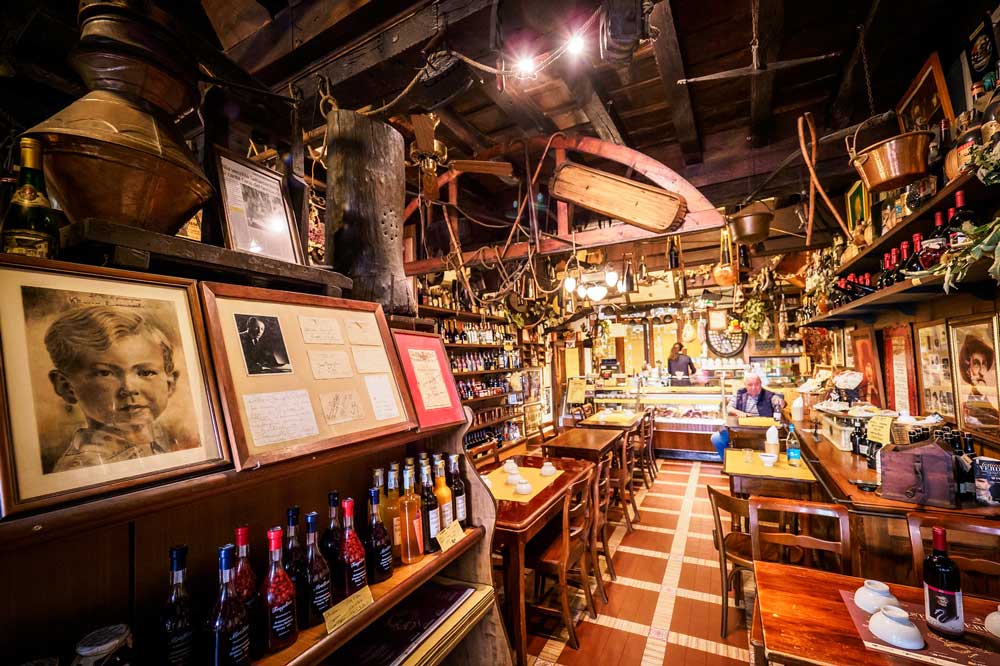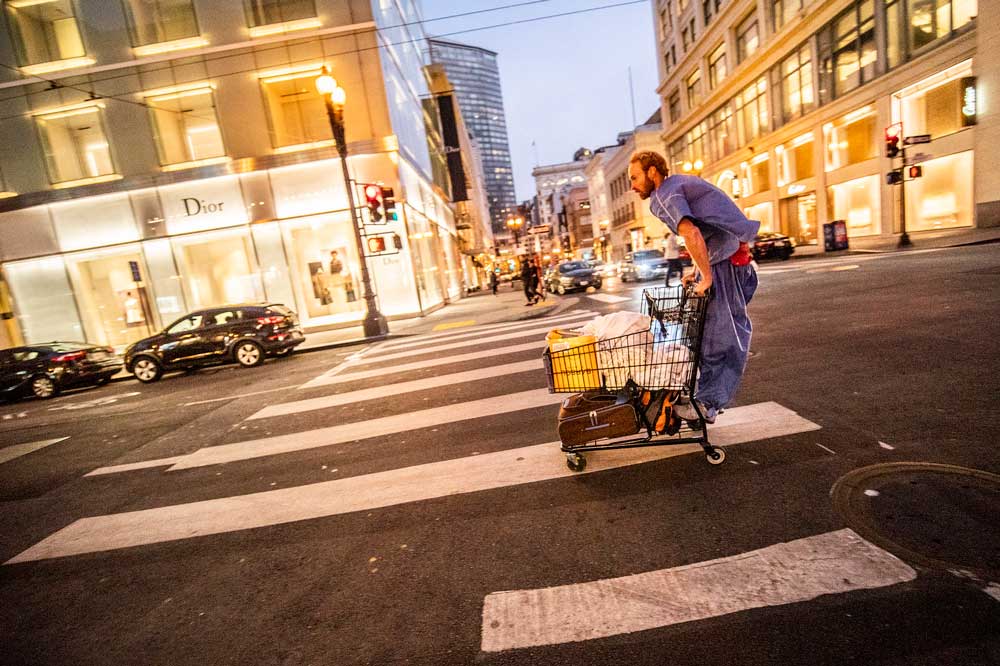The honor and the shame in the Italian Food System
honor and shame in the Italian restaurant industry
by Luca Farinotti
The honor and the shame in the Italian Food System
I park my little white van as near as possible to the Food entrance of this gargantuan warehouse, which I swore I would never enter. Alack and alas, it turned out to be an empty promise. I get out of the van. The morning air is thick and grey. I lean against the van, take my smartphone out of my pocket automatically, without connecting my brain.
I lackadaisically scroll down the screen with my left thumb. I instinctively feel the need to do something remotely human: I light a cigarette. I put away the phone and stand there, watching the world go by. Just watching, without any target. The car park starts to come alive. Everybody arrives, at almost regular intervals. They are my father’s colleagues; the restaurateurs I admired when I was a child. I look at them, as they get out of their vehicles, limping. I see these men with stiff, stooped backs. Inhuman postures, deformed gaits. As I look at their pale and almost grey faces, I can feel the abhorrence of mankind. They line up to insert a coin to unlock a shopping trolley. They shake hands, they greet each other, they complain about the clients, the Italian tax authorities and Italy itself. They walk past me, one by one. Some say hello due to circumstance, others greet me with a smile. Some pretend not to have seen me, others see me and, in turn, want to make sure that I will notice them; they fix their eyes on me angrily and then simply keep walking. Some ignore me, as they do nothing but walk along their desolate path without looking around.
And now I can also see them coming: the youngsters. Those who go to the supermarket to buy fruit with their €80,000 SUVs. Those who put their iPhone earpiece on first thing in the morning, and with which they live in symbiosis. Those who rock. Those who arouse compassion, but at the same time also anger and the desire to settle a score with them.
On their young faces, I can see a cheeky-monkey smile, I can perceive the wild energy which is responsible for nurturing this system in which they unconsciously live subjugated, like a flock of sheep. They, like the older ones did, insert a coin in a shopping trolley, greeting each other more loudly. As they pass by, at every step, they become the emblem of human abhorrence.
“Look how far we have fallen” I think. This is how today’s restaurateurs do the shopping. Everyone gets sucked into the same, huge spiral, the standardising multi-compartment box, the measurement of moral disfigurement.
You’re inside the mondometro[1], the home of the Horeca[2] large-scale distribution, responsible for the flattening of mondoristorante. The victory, the great victory of food standardisation. The executioner of the small producers. A triumph in which an unexpected and deplorable multitude of allies — the restaurateurs — played a big part by siding with the anti-cultural army. In less than an hour, the contemporary restaurateur will have found everything he needs to create his menu.
Almost every public premises, from the neighbourhood bar to the Michelin-starred restaurant, get their food supplies entirely from these enormous warehouses, where salad looks always the same, every day of the year, as if it was photocopied. There, defrosted greater amberjacks and scampi shamelessly show their registration number and a series of Angus beef lines up like armed troops. The mondometro experience will sting at first. Later, as it becomes (forcibly) part of you, although it’s impossible to avoid its consequences, you will be able, at least, to identify its mark.
At the beginning of your initiation path of awakening, you’ll recognise the simplest things. For example, the fact that the majority of the Michelin-starred dishes, as well as normal ones, are always served on a bed of corn salad, any day of the week. This way, by condemning this practice, you’ll learn to appreciate a proper salad, grown in a vegetable garden, and to feel
gratitude towards who served it to you, even if it happens in the worst kebab shop. The taste of Horeca products are amazingly always the same to the extent that it would be very simple to achieve new levels as a gastronomic investigator, up to attaining the Dan ranking of universal translator and militant debunker of standardisation.
You’ve already gone through all the steps: you’ve achieved a black belt, 5th Dan and you’re now in a big restaurant; you are served a salmon tartare. You can’t go wrong, at this point you know those forms like the back of your hand, like a portrait you’ve seen over and over again, hundreds of times.
You could stand up, now. Hurl your starter at the waiter, overturn the table. Pull an automatic gun on the restaurateurs and commit a mass murder. But you simply look at your dish again. Then, you rapidly have a look around. You see people sitting comfortably and serenely. A pale look on their grey faces, but on them, fine clothes. You look at them as they put into their jaws, with the most spontaneous naturalness, a forkful of mondometro prawn en croute, or mondoselecta steak tartare. They smile. They leave the mixed salads on their plates. Their subconscious rejects it with abomination.
The collective subconscious judges this performance as sufficiently functional to justify the 30-euro bill which you’re about to pay for what can be defined, at best, as nothing more than aesthetic self-celebration.
Mondometro is the Pandora’s box from which the impromptu restaurateur comes up with insane solutions by taking convenient short cuts.
The short cuts of the mondoristorante are a real vice which not only enslaves men easily, but also, and above all, turns them into indomitable protectors of the system itself, if it means safeguarding their own ephemeral social worth which, again, is supported and fed by this system.
How can we even entertain the thought of asking the restaurateur who buys his products from large-scale distribution to be sincere and declare himself to be a deceiver, since the deceit shields his working strategy? If the restaurateur who conforms were forced to look at himself in the mirror or if he were constantly under the watchful eye of Big Brother’s cameras,
would he even feel obliged to behave as virtuously as possible, commensurately to his own culture and self-awareness? This cannot happen anyway, as the system he operates in is ruled by the mass media, which ensure a fictitious and adaptable transparency to show selectively only what they want you to see.
A sense of shame and guilt were considered ethical regulations, before the era of social media. Guilt culture was typical of modern Western civilization and first appeared in Greece, after the Homeric epic (in fact it already appeared completely evolved in Greek tragedy).
In a guilt culture, when someone infringes the code of conduct, established by the society in which he lives or by his religious ethic, even if he succeeds in avoiding a penalty, he tends to admit behaving improperly, and feels remorse. Although guilt culture has long since died out, we were at least left with shame culture, which is based on the fact that the punishment for improper conduct doesn’t consist in the sense of unworthiness that someone feels, but rather in community disapproval. For this reason, a certain behaviour wasn’t considered wrong until the community disapproved, and the penalty could only consist in the sense of shame which afflicts those who failed to live up to their own fame, subjecting them to public contempt. Therefore, in this kind of society, supreme good wasn’t achievable by simply having a clear conscience, but through attaining public esteem.
What mattered wasn’t so much being strong or courageous, but that other people described you as strong and courageous: glory (from the Greek translation of voice) was the admiration and praise that the community expresses for a person who had shown his worth in public. Hence the importance assumed by τιμη (timè), i.e. honour, which derives from public recognition. Timè, in turn, was not an abstract feeling, but usually manifested itself tangibly with tributes or special honours bestowed upon the most valiant people.
A shame culture strongly influences the impulses of an individual, steering him towards proper conduct, meaning that he behaves following external pre-established patterns, from which he dare not distance himself for fear of public condemnation: everything that subjects him to public disdain is unbearable for him, to the point that even death is preferable.
Well, mondoristorante is a container whose media exposure is an unprecedented social phenomenon, both before and after social media were invented. And τιμη has to be achieved at any price, by distorting reality and destroying any possibility of being confronted with shame.
[1] The “world” of Metro Cash and Carry supermarkets of the German multinational which operates wholesale stores primarily under the Metro brand. [N.d.T.]
[2] Acronym used to refer to sectors related to the hotel and restaurant business. [N.d.T.]

Luca Farinotti
you may be also interested in
- 29/12/2023|
by Luca Farinotti
- 23/03/2024|
by Redazione











